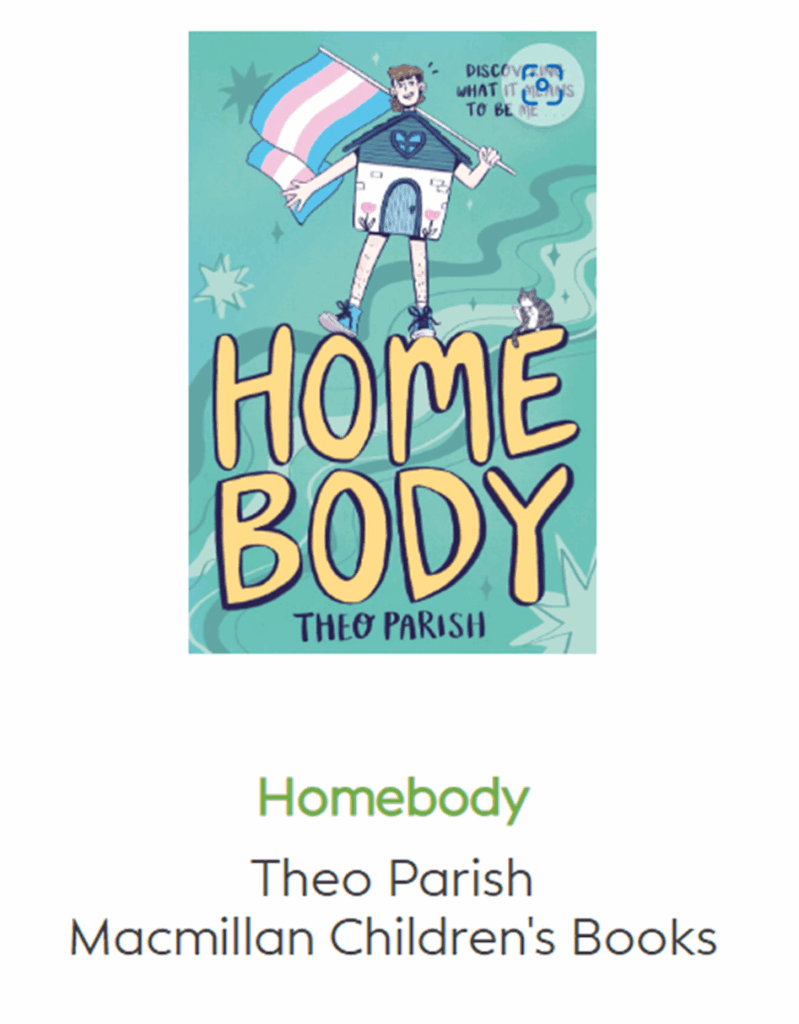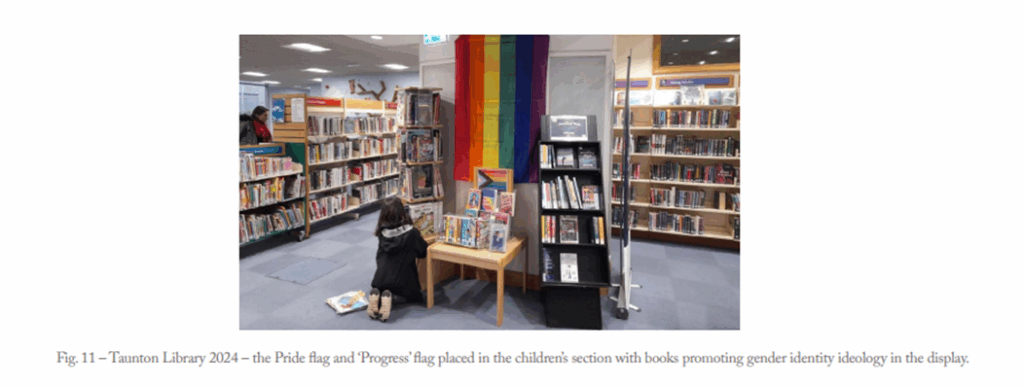After last week’s momentous Supreme Court ruling that men who pretend to be women aren’t really women, Sir Keir Starmer has finally broken his silence to do a full U-turn on his previous opinion that “trans women are women”. Asked by a journalist on April 22nd whether he would repeat that statement, the Prime Minister said the ruling had “answered that question” and that he was “really pleased” with the “much-needed clarity” it brought, adding that it was now time to “move on”.
Downing Street was subsequently asked if Sir Keir still believes that “trans women are women”, with his official spokesman responding: “No, the Supreme Court judgment has made clear that when looking at the Equality Act, a woman is a biological woman. That is set out clearly by the court judgment.”
His comments came just hours after the Education Secretary and Minister for Women and Equalities Minister Bridget Phillipson welcomed the ruling, saying trans women should use male toilets, adding that “services should be accessed on the basis of biological sex”.
Phillipson appears to be another fickle politician blowing with the prevailing wind, since only last year she said in an interview on Times Radio that trans-identifying men with a Gender Recognition Certificate should use female toilets.
Many gender critical campaigners will only be convinced that Phillipson is taking this issue seriously if she publishes the guidance for schools on gender-questioning children which was commissioned under the last Conservative government, as the majority of schools still allow children to socially transition and be recognised as the opposite sex.
The Telegraph cartoonist Matt was as usual on sharp form, depicting Westminster as the papal conclave with white smoke showing that the Starmer “has decided what a woman is”.

It may be satire but for many women who have been persecuted by trans activists and lost their livelihoods because of the Government-sanctioned gender ideology, it adds insult to injury that the Prime Minister thinks he can just skip over the last few years and pretend that because he now agrees women can’t have penises that everything is fine.
Everything is certainly not fine. The education system (from nurseries to universities), the NHS, Government departments and most publicly-funded organisations are completely entrenched in the gender cult and it will take a full-scale public investigation to find out how and why this has been allowed to happen.
Now is not the time to “lower the temperature” as Starmer asserted to the leader of the opposition Kemi Badenoch during PMQs this week, to the wrath of some social media commentators who christened him “Mr Flip-Flop”.

It was gratifying to see Badenoch challenge Starmer during PMQs on his “lack of moral courage” for “cheering an ideology that denied safe spaces for women and girls because he thought it was cool to do so” and for “hounding” the former Labour MP Rosie Duffield “out of his party for telling the truth”.
However, the Conservatives are just as guilty for allowing gender ideology to become entrenched in education and public services – after all, it was Boris Johnson who was Prime Minster when the DfE introduced compulsory LGBT relationship and sex education (RHSE) into schools in 2019, thus opening classroom doors to trans activist organisations looking to indoctrinate children.
It was also the Conservatives, under the leadership of David Cameron, who in 2010 placed Arts Council England (ACE) in charge of the budget of libraries in England.
As revealed in the new report from the Family Education Trust (FET), ‘Losing Our Libraries‘, the fact that ACE has been left to control funding without proper oversight has led to public funds being funnelled to further social causes and promote gender ideology to children.
FET’s research paper, conducted by members of the Women’s Right Network, found that 80% of grants for libraries by the Department for Culture, Media and Sport (DCMS) controlled by ACE goes to private companies, the vast majority of which (including eight of the 10 awarded more than £300,000 a year) are charities.
The report argues that lack of scrutiny on how taxpayer’s money is used has led to library mission-creep beyond their core purpose and has made them vulnerable to social trends, including the influx of the gender movement.
Gender ideology and wider ‘social justice’ ideology has become demonstrably prevalent in the librarians’ professional body, the Chartered Institute of Library and Information Professionals (CILIP). Guidance from this body on ‘Managing safe and inclusive public library services’ explicitly calls into question library neutrality, a violation of its ethical commitments to impartiality and the avoidance of ‘inappropriate bias’.
Indeed, the shortlist for the Carnegies, the UK’s longest running book awards for children, which are managed by CILIP and judged solely by librarians, includes a graphic novel exploring gender identity nominated for the 2025 Carnegie Medal for Illustration. Homebody by Theo Parish is described as a cross between a comic and a journal and said to be:
A refreshing authentic visual autobiography told through an intimate graphic novel. Theo the lead character takes us on a rites-of-passage journey about self-acceptance and coming to feel confident in one’s own body. Issues around gender, identity and sexuality are explored in a clear, confident and accessible way through the visual narrative and build empathy and compassion.
The age rating is aged 14-plus and has the content warning that it contains “some homophobia, gender dysphoria, transphobia and dead-naming”.

The press announcement for nominations states:
Theo Parish, one of two debut author-illustrators competing for the Medal for Illustration, has been shortlisted for Homebody, a “memorable” and “original” graphic novel about trans identity and the importance of living authentically. Judges hailed this “important book” as an “original” take on a “complex” subject, “illustrated beautifully” using the colour palette of the trans flag.
Such ideological infiltration, especially as regards LGBT concerns, can also be seen throughout the system of institutions governing libraries, including the Arts Council and even the current Secretary of State for Culture, Media and Sport.
This lack of neutrality undermines the high level of trust which the public puts in libraries to concentrate on promoting literacy according to objective measurements and standard principles of good governance and ideological neutrality.
‘Losing our Libraries’ exposes how the Reading Agency, an organisation that has developed a highly trusted brand within the library sector with its flagship initiative, the Reading Well scheme, promotes gender ideology and signposts children to LGBT activist organisations through its teenage book list.
Getting a book onto the Reading Well scheme is extremely lucrative for publishers, since every library in England and Wales has at least one copy of every title.
As of May 2024, there were 3,159 libraries in England and Wales. Freedom of Information Act requests reveal that the initial funding from DCMS was £3.5 million, of which £2.5 million was a one-off award to cover the cost of the Reading Well collections including eBooks and audio books. Between 2018 and 2024, Welsh libraries were awarded more than £1.8 million by the Welsh Government to purchase these titles, some of which were also made available in Welsh language translations.
It is to be expected that key individuals in the publishing industry will have connections to organisations like BookTrust and the Reading Agency. However, a small number of individuals hold a surprisingly large number of influential positions across these organisations.

Between them, David Shelley and Paul Kelly hold directorships at 23 publishing houses and both are Trustee Directors of the Reading Agency. David Shelley is a Director at Hodder & Stoughton Ltd, and CEO at Hachette. Hachette owns or trades under the name of Franklin Watts, Jessica Kingsley Publishers and Wayland. Meanwhile, the portfolio of publishing houses under David Shelley’s influence owns a high proportion of the titles on the Reading Well book lists. Whilst there is no evidence of any wrongdoing, of the 33 books in the current Reading Well for Children list, 16 are from Hachette or Hodder, including eight titles from Jessica Kingsley Publishers.
Overall, more than half of the Reading Well titles are published by companies where David Shelley is CEO or a Director, with the Reading Well for mental health list having 25 of 37 titles owned by Shelley’s companies.
Given the extent to which gender identity ideology is embedded in publishing generally and Hachette in particular, in local councils, CILIP and Arts Council England, it is unsurprising to find books promoting this highly contested, counterfactual ideology being enthusiastically offered to children by public libraries.
Three of the books that are included in the Reading Well for Teens list in the category Sexuality, Gender Identity and Mental Health are highly questionable as to the objectivity, veracity and coherence of their contents. The titles are: Welcome to St. Hell: my trans teen misadventure by Lewis Hancox; Coming Out Stories edited by Emma Goswell and Sam Walker; Queer Up by Alexis Caught.

All three of these titles promote gender identity ideology as fact, while Coming Out Stories signposts readers to transgender activist organisations including Mermaids and LGBT Youth Scotland. Both of these organisations have promoted puberty blockers for children. LGBT Youth Scotland has been subject to claims of child grooming and sexual exploitation, with its former CEO James Rennie being convicted in 2009 of child sexual assault.
Meanwhile, Mermaids provided breast binders to children and appointed paedophile apologist Jacob Breslow as a trustee. Mermaids was recently investigated by the Charity Commission for England and Wales which found it guilty of multiple child safeguarding failures.
An organisation like the Reading Agency that is encouraging children to read books promoting the idea that they can change sex, and directing them to activist groups keen to offer them misleading, harmful advice, must be challenged about these activities. Instead, Arts Council England continues to fund them with taxpayer’s money, no questions asked.
Perhaps the Prime Minister expects us all to applaud his newfound confidence in knowing what a woman is. While the courtroom battle over the legal definition of a woman may be won in legal terms, the war against gender ideology will only be over once we have eradicated the influence this dangerous movement has on society as a whole.

Lucy Marsh is the Communications and PR Officer of the Family Education Trust.













To join in with the discussion please make a donation to The Daily Sceptic.
Profanity and abuse will be removed and may lead to a permanent ban.
Lovely story, well done!
Seconded.
I was siding firmly with your Grandma the whole time, especially the bit about you forced to wait between connections in a desolate train station in the wee hours to catch a dawn train. Been there, done that, ticket office closed, cafes closed, railway officials gone home, no money for a hotel, pestered by a collection of drunks and druggies in Spain, as I sat very determinedly reading a book and trying to look as fierce as possible, while staying wide awake, which seemed to put them all off. I do not recommend it.
I’m so glad your Grandad quietly got in touch with his friend up north, to make your Grandma a bit happier. I’m sure they were all on tenterhooks until you were safely home again. I was, just reading it!
I hasten to add that I wasn’t a teenager, but middle-aged, and it was still scary!
So well done to you— you show great promise as a writer, Jack Watson.
When I was 16, I hitch-hiked from Scotland through England, France, Germany, Greece to Turkey, then hitch-hiked back through Roumania and a bunch of other countries back to Scotland. But I guess those were different times.
No mobile phones to keep in touch and help sort any unplanned events.
Great piece Jack. Your parents trusted you visiting my home town to see your favourite band. They were right. The obverse of the trend towards ‘adulting” children is the infantilisation of young people more than capable of looking after themselves.
Age 6, I daily comutted ‘solo’ from Parsons Green (Fulham) to South Ken to school. In uniform, with satchel! Felt so grown up.. but couldnt reach the straps to be a ‘strap-hanger’.
1962.. different world.
Also, 1976, hitch-hiked across Fr, Sp, It, Gr with no money.. relying on oddjobs and generosity of strangers, for 6 months. Not brave enough to try Turkey…
Age 20, do no big deal really..
When I was 15 I made a solo trip from London to Paris and back to meet the family of an exchange student who had spent time with us on a school trip. I was nervous, yes, but survived and I still remember it fondly nearly 50 years later
“I am not yet 16, but, encouraged by Kirsty Allsopp’s son’s interrailing adventures in Europe, I wondered how hard it could be. I had never been out of Hull on my own and had never changed trains on my own ”
——–
Well done and I’m glad you achieved your aim.
But as a recently-retired female, I find your story rather sad and an example of the infantilisation and coddling of young people which does nothing to build their confidence.
I was brought up in NE Kent, on the borders of London. During the school holidays, when I was age 12, my father (a MET policeman) came home with two Red Rover bus tickets and a bus map of London so I and a friend could spend the day riding the buses up to central London and back. He showed me the three buses we’d need to catch to get to Oxford St.
In turn, when my eldest son was 13 and wanted to go to London with a couple of friends I sat him down, made sure he could read the underground map, and let him go.
At age almost 16, a young person is only two years away from being officially declared an adult. If they’ve never left their home town and travelled alone anywhere they are not being properly prepared for adulthood.
Cities of Europe – London: We Live by the River – BBC iPlayer This is on the BBC archive – 2 boys on the buses in London. Unbelievable that this would happen now. Note how well the adults treat them.
Your post is unjust. You are conveniently forgetting that all countries of the West have been INVADED by millions of Muslim Men of Military Age and often criminal backgrounds who have wreaked havoc amongst our children and teenagers.
You cannot compare your situation half a century ago, or your son’s, with the dangers facing children today.
Things are NOT THE SAME.
All the more reason for them to learn to navigate their surroundings and further afield …. because at age (almost) 16 in just 2 years time they’ll be expected to be competent to do it.
My sons went to a (very good) comprehensive senior school in Surrey. They’d attended state infant and junior schools and by the time they got to the senior one, they knew how to deal with the “rougher” and more disruptive pupils.
The kids who went to private prep schools and then to the state comp for senior level (because the senior fees were too high) didn’t know how to deal with them …. and were (a) bullied and (b) struggled to adapt.
Good for you Jack. Your type of adventure would have been fairly commonplace when I was your age. I left school at 15 had a full-time job and a couple of holiday on my own,
On one occasion my family, mum, dad and sisters, when on one holiday whilst I went in the opposite direction, much to the chagrin of my elder sister that was not allowed the same privilege.
I hope your adventure has given you the conference to do more. Well done.
Well done Jack great story there’s hope for the younger generation yet!
At 67 years old I shudder at the thought of catching a train as I’ve had so many bad experiences over the years. Having said that, when I was 15, I would happily travel from London to Wolverhampton and then catch a bus. I think you become more risk averse as you get older- like your grandmother (I’m a grandfather)!
No, it’s just that THINGS HAVE CHANGED. Our once “High-Trust Societies” everywhere in the West have been ruined by Mass Third World Invasion.
A relative regularly used to hitch-hike 60 miles to and from boarding school from well under the age of 16.
That was in the days when email did not exist and there were no websites available to any old snitch to find out about how to snitch on people and then snitch.
There was only the telephone directory and landline phones.
Smart phones? That was in the days of Dick Tracy fiction.